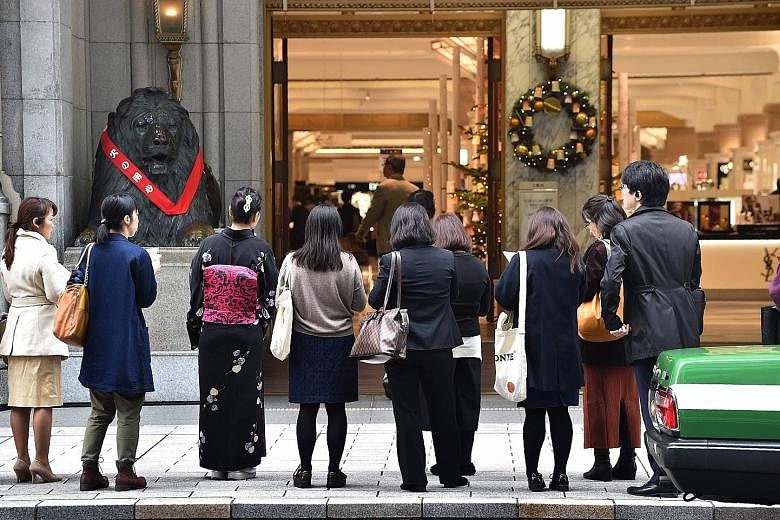TOKYO • Japan's unemployment rate held steady last month as the availability of jobs improved and household spending fell at a slower pace, a tentative sign that a robust labour market is lending support to domestic demand.
"The labour market has been improving for a while now, and this is starting to lift consumer sentiment," said Mr Hiroshi Miyazaki, senior economist at Mitsubishi UFJ Morgan Stanley Securities.
"I expect consumer spending to pick up pace in the future.
"People are also buying more household goods because the Bank of Japan's monetary easing has sparked an increase in real estate investment."
Japan's unemployment rate has been falling partly due to its shrinking labour force and a shortage of workers in construction, healthcare and hospitality.
The seasonally adjusted unemployment rate last month was 3 per cent, unchanged from September and in line with economists' median estimate.
The jobs-to-applicants ratio rose to 1.40 from 1.38 in the previous month to reach the highest level since August 1991, separate data showed on Tuesday. The median estimate was for a rise to 1.39.
But household spending has been falling since March as lacklustre gains in real wages and worries about how the Bank of Japan's negative interest rate policy would affect the pension system turned some consumers even more cautious, economists said.
Data on Tuesday showed consumers did increase spending on domestic travel and furniture last month, offering tentative signs that spending overall is bottoming out.
Household spending fell 0.4 per cent last month from a year earlier, less than the median estimate for a 0.6 per cent annual decline, as shoppers spent less on food and transport.
Separate data showed retail sales fell 0.1 per cent last month from a year ago, less than the median estimate for a 1.2 per cent annual decline and less than a 1.7 per cent annual decline in September.
Rising spending on clothes, food and transportation led to the slower decline in overall retail sales, the data showed.
Signs that the pace of decline in household spending is easing would be welcome for Japan's fragile economic outlook.
Japan's economy expanded for a third straight quarter in the July-to-September quarter as exports recovered, but domestic activity remained weak.
Other data has shown consistent declines in consumer prices, another warning sign that domestic demand lacks momentum.
REUTERS

